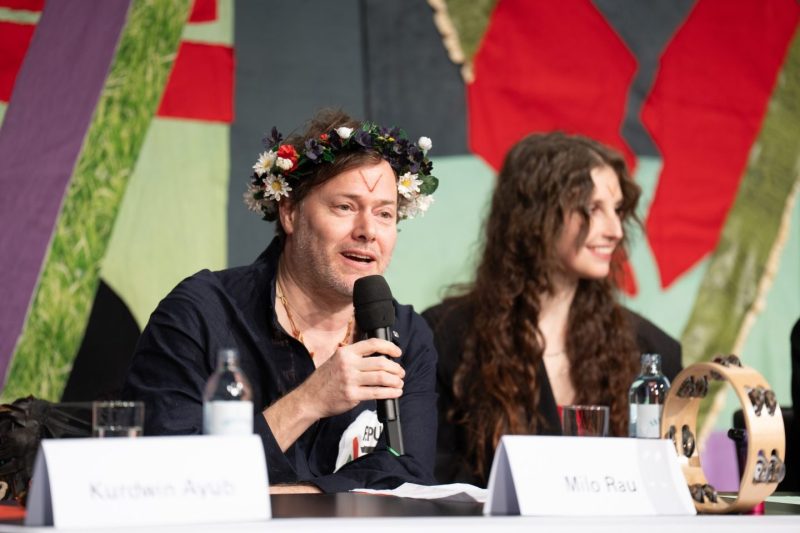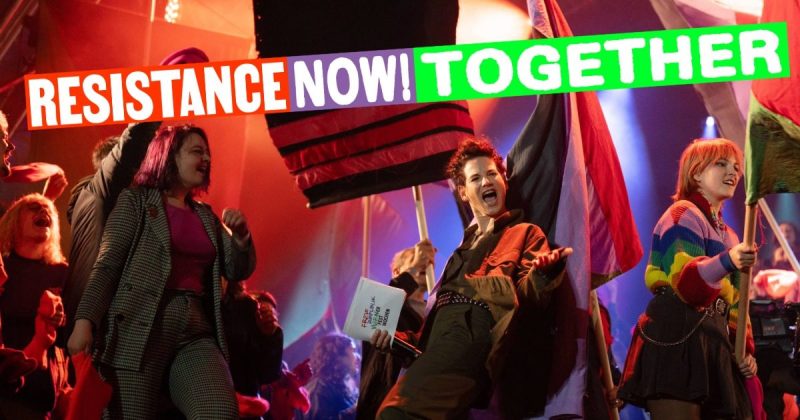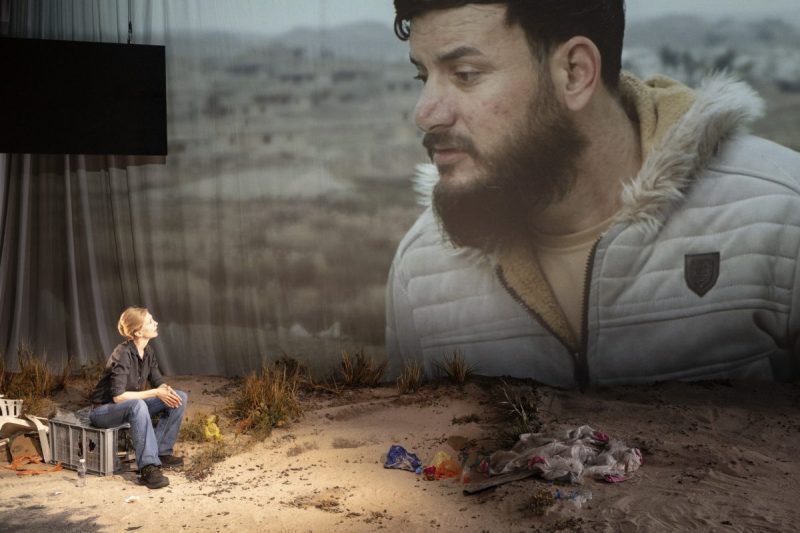by Oana Stoica
“Theatre does not have to be political; it is political anyway. Theatre must be surreal, crazy, mind-boggling and unbearably contradictory. Sometimes – as it currently happens in Slovakia, in Hungary and in Austria – art must become a weapon to defend one’s own freedom. (…) This is why the political theatre I am talking about makes its point by asking fundamental questions about the way we live together, about our beliefs, and how we represent the world. It is one thing to stage a play in today’s Moscow – it is quite another to do the same in Palestine, Italy, Brazil, Hungary, the Democratic Republic of Congo or Austria. It is a deeply political act to step onto a stage as a human being. Because there is always a political or social situation that you are reacting to, even if you do it through the audience, who project their own views, hopes and traumas onto the stage.”

This is an excerpt from the speech Milo Rau held at the ITI World Congress “Embrace and Connect” in Antwerp, Belgium, on the 19th of September 2024. It explains the reasons why the famous theatre director, now also the artistic director of the Vienna Festival (Wiener Festwochen), has developed a global program of debates and actions (such as performative reading) through which he aims at connecting people of culture from the entire world in a partly symbolic, partly practical act of solidarity and cultural resistance towards authoritarianism, isolationism and censorship.
Wiener Festwochen is Vienna’s festival of performing arts that Rau has transformed into a free Republic (2024 edition theme) and a Republic of Love / V from loVe (2025 edition theme), which means safe spaces for expression, artistic questioning and an attempt at cultural solidarity in response to the growing spread of autocratic policies. “If the disunity of the enemies of democracy is good, the disunity of their friends is a problem”, declares Rau, initiating a world tour of discussions – Vienna, Bratislava, Amsterdam, Berlin, New York, Stockholm, Prague, Mosul, Taipei, Avignon, Barcelona and Bucharest, where the artist will be present on the 13th of November, 2025 for a debate with Romanian artists, which I will be moderating at the Bucharest Cultural Centre, ARCUB.

Milo Rau’s initiative is not surprising if we look at his performances, always provoking by the perspective they take on society’s derailments from ethical norms (inclusion, diversity, equity) and by the uncomfortable, sometimes irreverent questioning of power, but also of the collective mind. His performances always present a reality – documented and fictionalized during the analytical approach – which challenges the status quo, polarizes the public and stirs powerful emotions. La Reprise presents the murder of a gay Arab immigrant, Grief & Beauty – the elderliness destroying dignity, Family – the suicide of a whole family, Five Easy Pieces – a child rapist, Medea’s children – a mother who committed 5 infanticides etc.
But there is also a different direction in Milo Rau’s performances, that of reinterpreting ancient literature within conflict settings: Orestes in Mosul (Oedipus performed in post-war Iraq), Antigone in the Amazon (Antigone presented through the lenses of a serious incident in which indigenous people from Brazil were shot dead during a protest against the destructive exploitation of the Amazon jungle by big capital owners), The New Gospel (The Gospel interpreted in the community of economic immigrants from the south of Italy) or the recent The Seer, in which the director returns to Iraq, where he has opened a film school to work on a scenario that adapts Philoctetes by Sophocles, intertwining it with the story of a war photographer – a composite character built from several real stories.

The monodrama is performed by Ursina Lardi, the actress who had the main role in LENIN, directed by Milo Rau at Schaubühne Berlin. The Seer, which had its official premiere on the 5th of June at the Wiener Festwochen and will also be performed at FITS on the 22nd and the 23rd of June, questions violence as a symptom of the blindness of self-destructive humanity. This is also the direction presented by the series of trial plays that Milo Rau created starting with The last days of the Ceausescus (Odeon Theatre, Bucharest, 2010), Hate Radio, Moscow Trials, The Congo Tribunal, The Berlin Dialogues, The Civil War, up to the latest version of these trials – debates taking place at the Wiener Festwochen, 7-8 hour long durational performances in which abstract categories are ”judged” – art and abuse, cultural wars or the Pelicot case (France).
“Resistance has no form, resistance is the form, and it looks different everywhere”, says Milo Rau. And to resist the advance of autocratic isolationist sovereigntism, culture and solidarity have to unite. This is at stake in Milo Rau’s debates, organizing a cross-border resistance to preserve democracy.
Translation: Hilda Loboncz, Credit photo: Franzi Kreis


